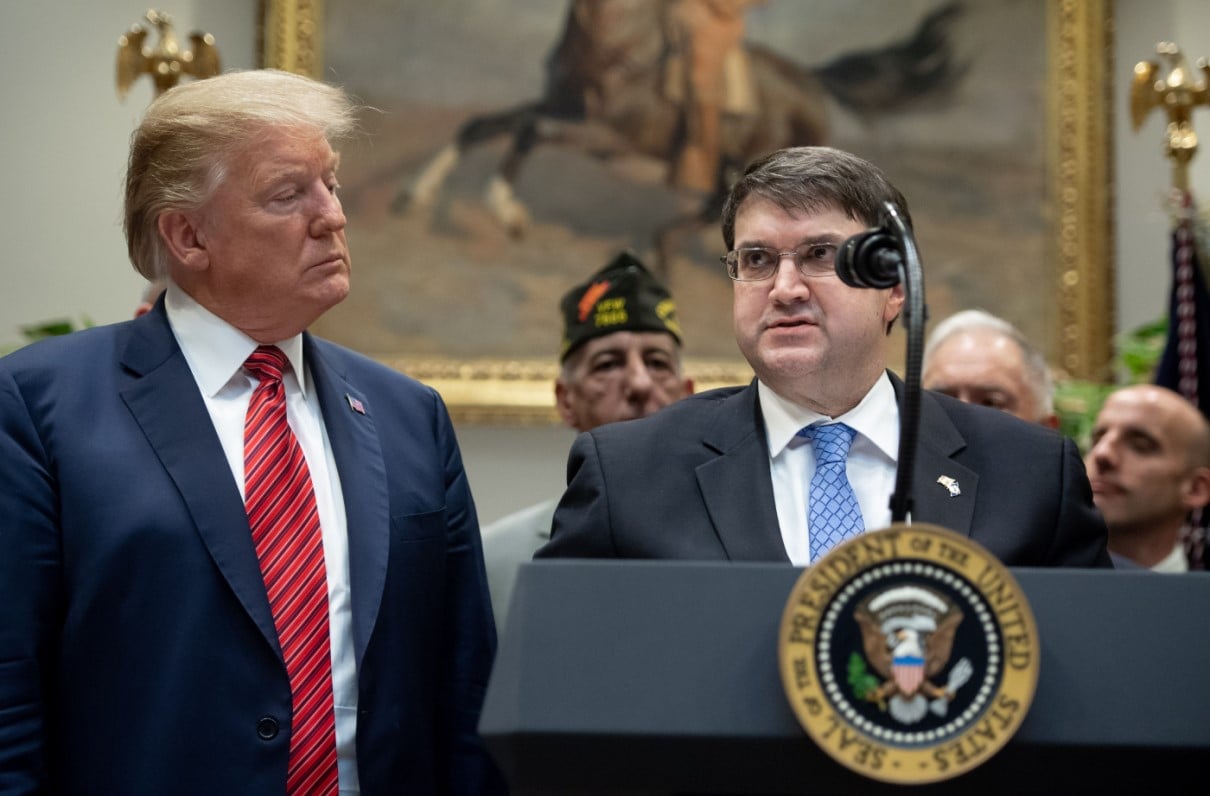More than a month late, President Donald Trump rolled out his proposed funding priorities for the federal government when he delivered his fiscal year (FY) 2020 budget to Congress on March 11.
What has been coined a “skinny budget” offers mostly top-line dollars for major programs within the federal agencies and little details behind the numbers.
The Departments of Veterans Affairs, Defense, and Homeland Security are three of only a handful of agencies to see an increase in their top lines.
For the VA, the proposed budget reflects the administration's commitment to providing veterans more quality, efficient and timely services - funding the department's highest priorities such as implementing the VA MISSION Act, interoperability and modernization of the joint VA and DoD electronic health record, business transformation, and customer service improvements.
[RELATED: The President's Budget: What Can We Expect Next?]
In addition, the proposal reflects five consecutive years of growth in the VA budget - a 32 percent increase from FY 2016 through FY 2020.
Some of the budget highlights:
Medical Care
- $220 billion for the entire department, a 9.5 percent increase over 2019.
- $84 billion for medical care, a 7.5 percent increase over 2019, and $91.8 billion in advance appropriations for medical programs in 2021 to ensure continuity of care for over 9.3 million enrolled veterans. This includes funding for:
- Mental health and inpatient, residential, and outpatient care.
- Women's health care.
- Programs to prevent and reduce homelessness.
Note: According to the administration, the proposed budget “fully funds all requirements for veterans' health care services and provides additional funding to implement the MISSION Act providing veterans greater choice and access to medical care.”
Benefits
The budget includes $123 billion in mandatory funding for disability and other veteran survivor benefit programs, an 11 percent increase over 2019, and $129.5 billion in advance appropriations in 2021. This includes benefits for:
- Over 5.5 million receiving disability benefits.
- About 440,000 receiving pensions.
- Nearly 1 million students.
- 149,000 receiving rehabilitation and employment benefits.
- 6 million servicemembers and Veterans' Group Life Insurance (VGLI) enrollees.
- 3 million home mortgages.
- Memorial and burial benefits in more than 137 national cemeteries, and thousands of other cemeteries across the country.
[RELATED: 2020 Budget Proposal Has Largest Troop Pay Raise in a Decade]
The FY 2020 budget is designed to strengthen benefits claims processing; deliver a new, simpler, and more timely appeals process that gives veterans choices and control; and invest in information technology and construction projects.
It also contains some proposals impacting veterans' benefits that require monitoring and further investigation, such as:
- Reintroducing COLA round-downs for disability benefits.
- Capping post-9/11 GI bill benefits for flight training in public schools.
- Standardizing and enhancing VA compensation and pension benefit programs.
Most concerning in the proposal is the administration's announcement stating that “VA is also committed to modernizing the disability compensation program and identifying innovative pilot programs aimed at providing meaningful empowerment opportunities or disabled veterans seeking employment.”
Many MOAA members and readers may remember the administration's attempted to cut several veterans' benefits back in 2017. MOAA and other veterans and military service organizations rallied against the cuts.
MOAA will provide more details on the president's budget as the information become available after further investigation, and as the proposal proceeds through the budget and appropriations processes. We urge members and readers to stay connected through the MOAA newsletter and MOAA.org for updates and to be prepared to engage in alerts if necessary to protect your important service-earned health care and benefits.

